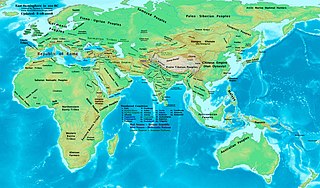 W
WThe 1st century BC, also known as the last century BC, started on the first day of 100 BC and ended on the last day of 1 BC. The AD/BC notation does not use a year zero; however, astronomical year numbering does use a zero, as well as a minus sign, so "2 BC" is equal to "year –1". 1st century AD follows.
 W
WThe Battle of Carrhae was fought in 53 BC between the Roman Republic and the Parthian Empire near the ancient town of Carrhae. The Parthian general Surena decisively defeated a Roman invasion force under the command of Marcus Licinius Crassus, who died at the battle. It is commonly seen as one of the earliest and most important battles between the Roman and Parthian Empires and one of the most crushing defeats in Roman history. According to the poet Ovid in Book 6 of his poem Fasti, the battle occurred on the 9th day of June.
 W
WThe Battle of Lake Constance was a small naval battle between Roman forces and Celtic tribes in the spring of 15 BC.
 W
WThe Battle of Thapsus was an engagement in Caesar's Civil War that took place on February 6, 46 BC near Thapsus. The Republican forces of the Optimates, led by Quintus Caecilius Metellus Scipio, were decisively defeated by the veteran forces loyal to Julius Caesar. It was followed shortly by the suicides of Scipio and his ally, Cato the Younger, and the surrender of Cicero and others who accepted Caesars pardon.
 W
WCoele-Syria alternatively Coelo-Syria or Coelosyria, was a region of Syria in classical antiquity. It probably derived from the Aramaic word for all of the region of Syria, but it was most often applied to the Beqaa Valley between the Lebanon and the Anti-Lebanon mountain ranges. The area is now part of the modern-day Syria and Lebanon.
 W
WDacia was the land inhabited by the Dacians. The Greeks referred to them as the Getae and the Romans called them Daci.
 W
WThe Hasmonean Civil War was a civil war between two claimants to the Hasmonean Jewish Crown. What began as an inter-Jewish conflict became a highly decisive conflict that included the Nabataean Kingdom and ended with Roman involvement. This conflict resulted in the loss of Jewish independence.
 W
WJulius Caesar, the Roman dictator, had planned an invasion of the Parthian Empire which was to begin in 44 BC; however, due to his assassination that same year, the invasion never took place. The campaign was to start with the pacification of Dacia, followed by an invasion of Parthia. Plutarch also recorded that once Parthia was subdued the army would continue to Scythia, then Germania and finally back to Rome. These grander plans are found only in Plutarch's Parallel Lives, and their authenticity is questioned by most scholars.
 W
WThe Shunga Empire was an ancient Indian dynasty from Magadha that controlled areas of the central and eastern Indian subcontinent from around 185 to 75 BCE. The dynasty was established by Pushyamitra Shunga, after the fall of the Maurya Empire. Its capital was Pataliputra, but later emperors such as Bhagabhadra also held court at Besnagar in eastern Malwa.